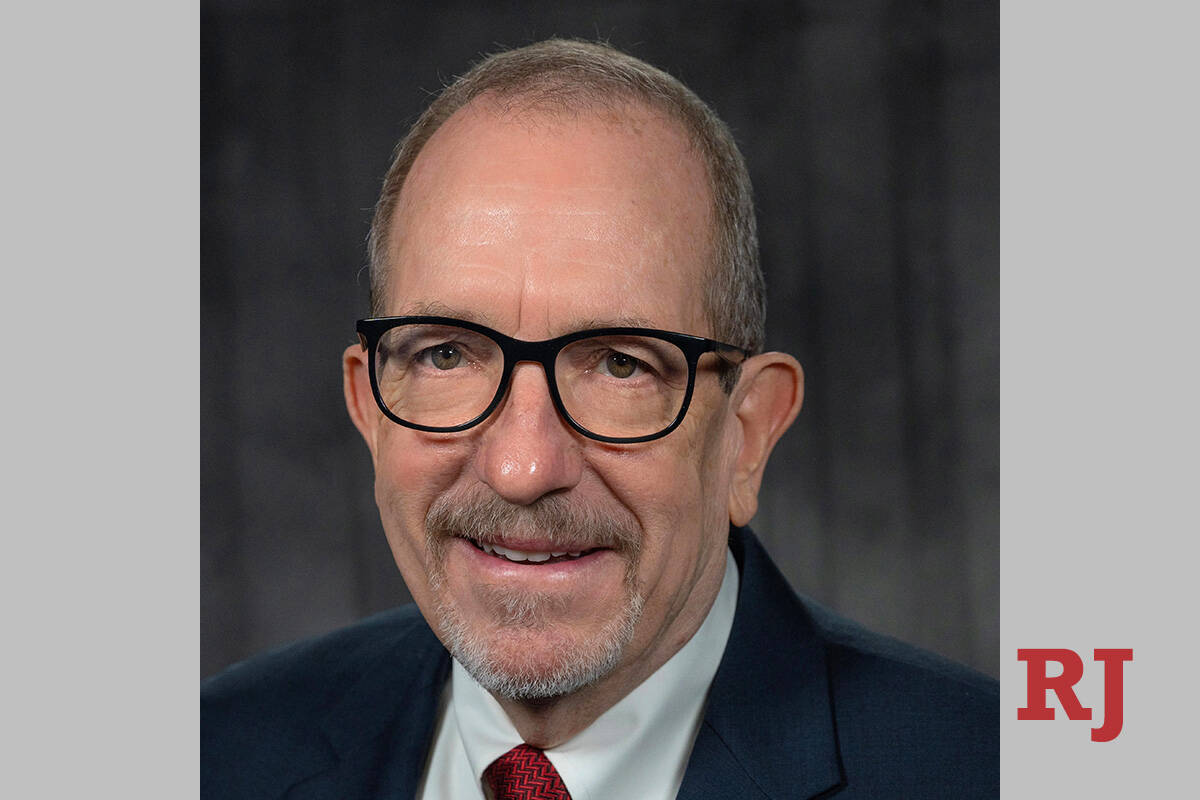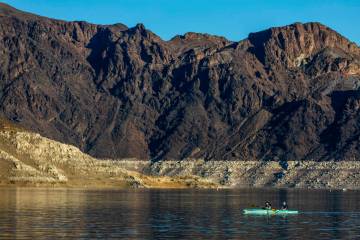Axed Colorado River nominee alleges interference: ‘Never seen this kind of vitriol’
The Arizona official nominated to anchor a rocky Colorado River negotiation process with an impending deadline claims he was iced out by Upper Basin officials who thought he would be biased against them.
Ted Cooke, who said he came out of retirement to try and help the two divided groups of states come to a consensus, alleged in an interview Thursday that Upper Basin state officials from Colorado, Utah, Wyoming and New Mexico urged members of Congress to oppose his nomination for Bureau of Reclamation commissioner.
“I’ve never seen this kind of vitriol and opposition based on presumed bias,” Cooke told the Las Vegas Review-Journal. “Are these basin states thinking that they’re going to be better off? Even if I was biased, or somebody else was biased, to have no commissioner rather than one from the opposite basin, that’s just crazy.”
Arizona, Nevada and California belong to the Lower Basin.
Cooke got a call from the White House on Tuesday asking him to withdraw his nomination and said an official gave an excuse about a faulty background check. The White House did not reply to a request for comment Thursday.
The senators that Cooke alleges were swayed against him include U.S. Sen. Mike Lee, R-Utah, and Sen. Martin Heinrich, D-New Mexico, who are respectively the chair and ranking member of the Committee on Energy and Natural Resources. That was the committee that was set to give Cooke a hearing.
Lee’s office did not respond to a request for comment, but a spokesperson for Heinrich said in a statement Friday that the allegations were “entirely unfounded” and that he “played no role and exerted no influence over the decision regarding his nomination.”
Appointed officials from the seven states that rely on the Colorado River have been hashing out a vision for operating guidelines to replace the ones set to expire at the end of 2026. Though the Trump administration hasn’t been shy about its willingness to decide for states if they can’t agree, the Upper and Lower Basins remain deadlocked about the future.
“They’re not making any progress at all, and now it’s going to be even worse because they don’t have somebody working with them to try and make things happen,” Cooke said.
A wealth of information
From 2015 to 2023, Cooke was the head of the Central Arizona Project, a 336-mile pipeline system that brings Colorado River water to Arizona’s dense urban centers.
Officials from Nevada, Colorado and New Mexico declined to comment on Cooke’s allegations. Those from Utah, Wyoming and California did not respond to requests for comment. At the time of Cooke’s nomination, Nevada negotiator John Entsminger praised his experience.
Serving in the interim as commissioner has been David Palumbo, a UNLV grad who previously served as deputy commissioner with the Bureau of Reclamation during the Biden administration. According to The Federal Vacancies Act of 1998, Palumbo is allowed to serve another 210 days in office.
Nicole Klobas, chief general counsel for the Arizona Department of Water Resources, said in an interview Thursday that she has worked with Cooke since she began working on river issues in 2006.
Cooke was a key player in implementing a reduction of over 500,000 acre-feet per year in the Colorado River system through the 2019 Drought Contingency Plans, she said.
“I don’t think that there’s a world in which he could have favored Arizona by not imposing reductions,” Klobas said. “He knows a lot about the river, and it’s a shame that his knowledge and experience won’t be shared with the basin at a time when we really need it.”
’The river is going to decide’
The consequence of this decision could be dire, said Kyle Roerink, of the Great Basin Water Network that advocates for water security in both Nevada and Utah.
Roerink has been vocal about his qualms with the Upper Basin’s attempts to create more diversions along the river. The Lower Basin has advocated for basin-wide cuts that the Upper Basin isn’t keen on.
At an Upper Colorado River Commission meeting on Thursday, Upper Basin state representatives expressed worry that the Lower Basin wants to prohibit the creation of more dams or diversions, hampering development.
“I think this withdrawn nomination underscores the problems that we have ahead,” Roerink said. “Everybody’s sticking to their paper water and what they think they’re entitled to. Ultimately, the river is going to decide.”
More than losing out on his nomination, Cooke said he’s afraid for the future of the basin as an observer of the process and resident of a basin state.
“I’m very sad for the Colorado River Basin,” he said. “This couldn’t have come at a worse time. Why, all of a sudden, are we politicizing water in this way?”
Contact Alan Halaly at ahalaly@reviewjournal.com. Follow @AlanHalaly on X.


















